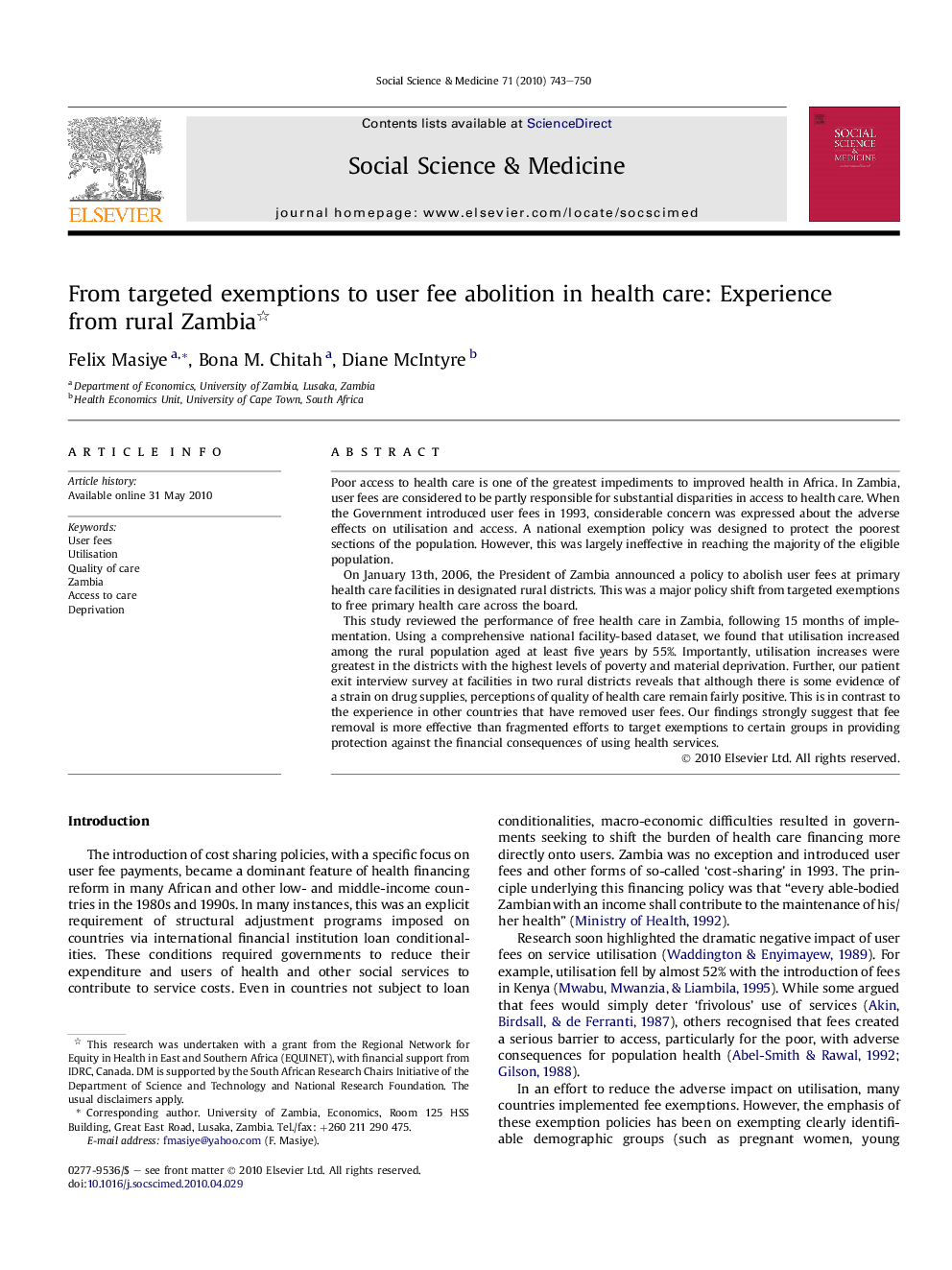| Article ID | Journal | Published Year | Pages | File Type |
|---|---|---|---|---|
| 953011 | Social Science & Medicine | 2010 | 8 Pages |
Poor access to health care is one of the greatest impediments to improved health in Africa. In Zambia, user fees are considered to be partly responsible for substantial disparities in access to health care. When the Government introduced user fees in 1993, considerable concern was expressed about the adverse effects on utilisation and access. A national exemption policy was designed to protect the poorest sections of the population. However, this was largely ineffective in reaching the majority of the eligible population.On January 13th, 2006, the President of Zambia announced a policy to abolish user fees at primary health care facilities in designated rural districts. This was a major policy shift from targeted exemptions to free primary health care across the board.This study reviewed the performance of free health care in Zambia, following 15 months of implementation. Using a comprehensive national facility-based dataset, we found that utilisation increased among the rural population aged at least five years by 55%. Importantly, utilisation increases were greatest in the districts with the highest levels of poverty and material deprivation. Further, our patient exit interview survey at facilities in two rural districts reveals that although there is some evidence of a strain on drug supplies, perceptions of quality of health care remain fairly positive. This is in contrast to the experience in other countries that have removed user fees. Our findings strongly suggest that fee removal is more effective than fragmented efforts to target exemptions to certain groups in providing protection against the financial consequences of using health services.
